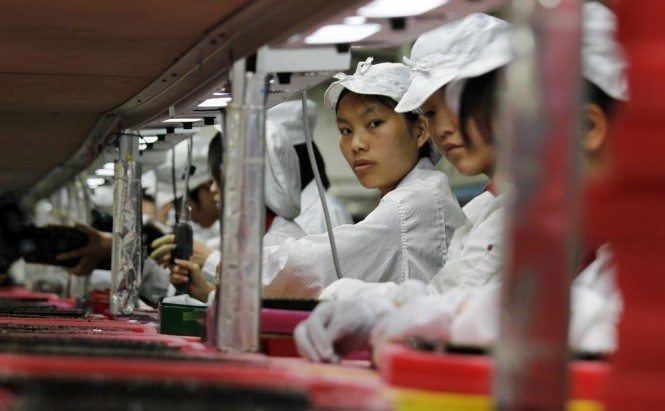 Why does Apple Employ the Chinese?
Why does Apple Employ the Chinese?
Why doesn't Apple give all these 700,000 jobs to the Americans? This question was allegedly asked by the President Obama to the late Steve Jobs early last year. The Apple's co-founder answered the President with a terse, but suggestive phrase: “Those jobs aren’t coming back.”
So, let's try to talk about the three major possible reasons for Apple giving jobs to the Asians.
Workforce
Firstly, it's the sheer number of people, needed by Apple. According to some estimates, the iPhone assembly factory hosts more than 230,000 jobs, which would make up the population of a decently sized American city. Currently there are only 82 such cities in the whole of the United States, whereas the number of the Chinese cities with the population higher than 1,000,000 people is about 160 and goes on growing. It means that Apple would almost inevitably have to build up its own Appleville with the population of at least 500,000 people if it wanted just to construct an iPhone assembly plant in the U.S. Considering the overall number of Apple's employees in China exceeding 700,000 people, search for employees in the USA starts looking even more problematic.
Flexibility
Secondly, the Chinese are way more flexible than the Americans. The competition among the Chinese employees is much tougher. They know that if they don't work the way their bosses want them to, or if they just open their mouth to make a complaint about their working conditions, their chances to lose their job will approximately be 100%. There are tens of thousands of people, dreaming of working at an Apple factory for 17 dollars per day in China, so it would be no problem to find a substitute for an employee who was let go for no apparent reason.
Here's a short story to illustrate this point. Six weeks before the first iPhone was presented to the public, Steve Jobs all of a sudden realized that implementing plastic screen in the device is a lousy idea, and announced to the Apple staff they had six weeks to replace those screens with ones made out of glass.
This would be in no way possible in the USA, as such tasks surely require overtime payment by the employers and huge amount of effort from the employees, which they are not prepared for.
In China, the Apple factory workers had 12-hour shifts and were quite okay with it. They started fitting glass screens into iPhones in less than a day after Steve Jobs made his last-minute decision. About twenty four hours later, 24,000 devices were already re-worked.
Margins
Thirdly, manufacturing its products in China, Apple gets enormous margins. According to the New York Times calculations, moving the production lines to the USA would increase the iPhone prices by humble 65 dollars. However, this figure reflects only the increase in wages. The lose end is the infrastructure development costs, which Apple would bear manufacturing their products in the USA. It's rather difficult to even estimate the investments they would have to make, but it's obvious they would lie in the nine-digit range.
In the long run, that would severely affect Apple's profit structure, and bedevil Apple lawyers' lives even more than they are now. The American labor laws would be a nice ground for legal complications with employees fighting against Apple bad working conditions. Besides, 8,700 engineers (working for Apple at the same assembly factory) would cost the Cupertino juggernaut a pretty penny, if they were Americans.
***
All in all, it seems like moving Apple jobs back to the USA would be no good thought for Cook and Co. Moreover, further possible increases in production capacities are almost sure to be carried out in China.
The major conclusion we can make after talking about all the reasons behind such unpatriotic behavior of the US economic locomotive is simple and clear. There is just no workforce in the United States that could satisfy Apple's appetite.



